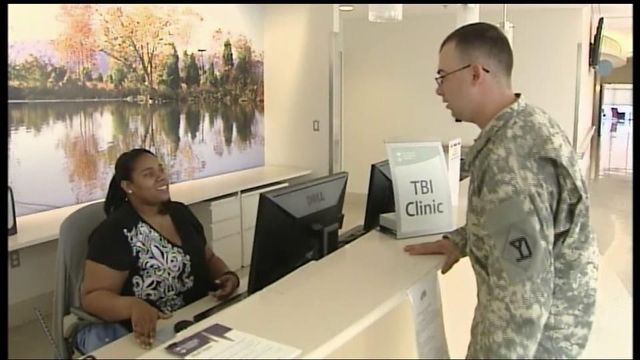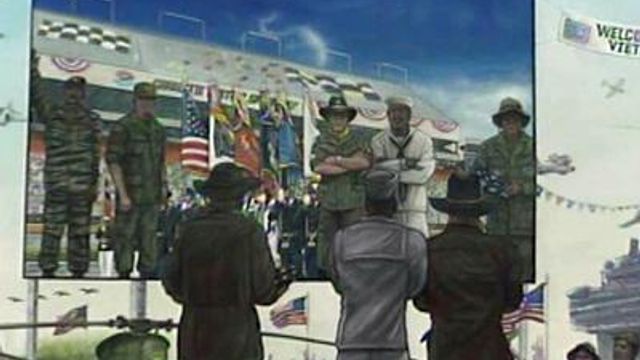Program offers therapy, hope for vets with traumatic brain injury
Broad-ranging symptoms can make diagnosis difficult.
Posted — UpdatedArmy Spc. Donald Jarvis cleared roadside bombs in Iraq and Afghanistan.
He was on patrol in Afghanistan in February when a bomb exploded under his vehicle.
The bomb caused "the vehicle to roll onto the driver's side, which is my side." Jarvis said. "I sustained a right knee injury at that time."
But what he didn't know until about a month later was that he had also suffered a mild traumatic brain injury or TBI.
"When I got to Germany, I started noticing the memory problems and everything else," Jarvis said.
Nearly 245,000 men and women who have served in U.S. forces have been diagnosed with traumatic brain injuries since 2000. The majority of those cases were mild.
"Sometime it's difficult to diagnose unless you see a specialist," said Dr. Heechin Chae, director of the Traumatic Brain Injury Program at Fort Belvoir Community Hospital in Virginia. "But once it's diagnosed properly, you can recover 100 percent."
Jarvis still struggles with headaches, sensitivity to light and has trouble sleeping. But thanks to his treatment at Fort Belvoir Community Hospital, his memory is getting better.
"As far as speech therapy goes, I'm working with different techniques to improve my memory – like associations and things of that nature," he said.
He hopes his intensive treatment will make it easier to adjust to life when he returns home to Massachusetts in a few months.
• Credits
Copyright 2024 by Capitol Broadcasting Company. All rights reserved. This material may not be published, broadcast, rewritten or redistributed.






